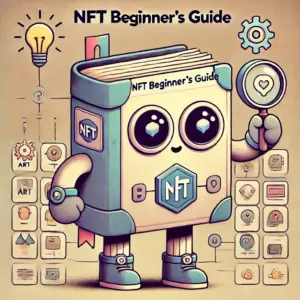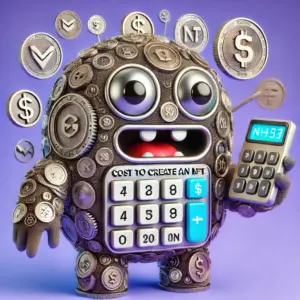In the rapidly evolving digital landscape, the concept of ownership has taken on new dimensions. Traditional notions of tangible assets are being challenged as virtual worlds and online experiences gain prominence. At the forefront of this revolution are non-fungible tokens (NFTs) and virtual assets, which are transforming how we perceive, create, and interact with digital content. This article explores the fascinating world of NFTs and virtual assets, examining their implications for individual and collective ownership in the digital age.
What are NFTs?
NFTs, short for non-fungible tokens, are unique digital assets that represent ownership of a specific item in the blockchain. Think of them as digital certificates of authenticity, proving you own a particular piece of digital content. Unlike traditional digital files easily copied and replicated, NFTs are one-of-a-kind, making them ideal for representing ownership of unique items in the digital realm.
NFTs are built on a blockchain, a decentralized and transparent ledger that provides a secure and verifiable record of ownership. This technology eliminates the need for intermediaries and allows for direct ownership, potentially empowering creators to control their work and engage directly with their audiences.
Types of NFTs:
NFTs encompass a wide range of digital assets, including:
- Digital Art: NFTs have become synonymous with digital art, as they allow creators to sell and authenticate their works online, establishing a clear chain of ownership for digital paintings, animations, and other artistic expressions.
- Collectibles: NFTs are redefining the collectibles market by enabling the ownership and trading of digital collectibles, such as virtual trading cards, in-game items, and unique virtual avatars.
- Music & Audio: NFTs are changing the landscape of music ownership. Artists can create and sell NFTs tied to exclusive music tracks, allowing fans to obtain unique digital recordings, behind-the-scenes content, or special access to events.
- Gaming Assets: NFTs are revolutionizing in-game economies by providing players with verifiable ownership of digital assets, unlocking new possibilities for trading, customization, and gameplay experiences.
- Virtual Real Estate: NFTs are paving the way for the ownership of virtual land in metaverse platforms, opening up exciting new opportunities for building, development, and commerce in digital worlds.
- Domain Names: NFTs are enabling the creation and ownership of unique domain names, providing users with greater control and flexibility in the digital space.
Virtual Assets: More Than Just NFTs
While NFTs are a significant player in the virtual asset scene, it’s important to distinguish them from other digital assets. Virtual assets encompass a broader spectrum of digital objects and rights that may or may not be based on blockchain technology. They include:
- Cryptocurrencies: Cryptocurrencies like Bitcoin and Ethereum are virtual assets whose value is determined by market forces and operate independently of central banks.
- In-Game Items: Many online games feature virtual items that hold economic value within the game’s ecosystem, often with a thriving marketplace for trading and exchange.
- Digital Currencies: These include virtual currencies issued by companies or platforms, often used to purchase digital goods and services within specific virtual environments.
The Rise of Virtual Worlds & The Metaverse
The rapid emergence of virtual worlds, particularly the “Metaverse,” is a key driving force behind the adoption of NFTs and virtual assets. The Metaverse refers to a collective network of interconnected virtual environments where users can interact, socialize, work, and even own digital property.
NFTs play a crucial role in the Metaverse by representing ownership of virtual real estate, avatars, and other digital assets. They enable interoperability between different virtual worlds, allowing users to move their assets seamlessly from one environment to another. This kind of seamless integration promotes a more interconnected and dynamic digital experience, where users have greater agency and freedom to shape their online presence.
Benefits of NFTs & Virtual Assets
The adoption of NFTs and virtual assets has created significant benefits for individuals, businesses, and artists alike.
- Digital Ownership: NFTs empower creators and users with verifiable and secure ownership of digital assets, offering greater control and permanence in a world where digital content can be easily replicated.
- New Revenue Streams: NFTs have created new opportunities for creators to monetize their work directly, bypassing traditional intermediaries and establishing a direct connection with their audience.
- Increased Liquidity: By enabling the trading of digital assets on marketplaces, NFTs and virtual assets create liquidity, allowing users to buy, sell, or trade their digital possessions. This fosters a dynamic and active virtual economy.
- Enhanced Collaboration: NFTs facilitate collaboration between creators and communities. They enable the creation of collaborative projects, where ownership is shared among multiple participants, fostering new forms of artistic expression and community engagement.
- Accessibility and Inclusivity: NFTs can make art and other forms of digital content more accessible to a wider audience, as it removes geographical and financial barriers to participation.
Challenges and Concerns
Despite the growing popularity and potential of NFTs and virtual assets, several challenges and concerns are associated with their adoption.
- Volatility and Speculation: The market for NFTs and virtual assets is known for its volatility, with prices experiencing significant fluctuations. This can be attributed to speculation and market manipulation, which can create an unstable investment environment.
- Environmental Concerns: The energy consumption associated with certain blockchains, particularly Proof-of-Work (PoW) consensus mechanisms, has raised environmental concerns. The high energy requirements of these blockchains can lead to significant carbon emissions, which are detrimental to efforts to combat climate change.
- Scams and Fraud: The decentralized nature of NFTs and virtual assets makes it easier for scams and fraud to occur. Lack of regulation in some sectors can create opportunities for malicious actors to exploit vulnerabilities and defraud users.
- Scalability and Interoperability: As the volume of transactions and digital assets increases, scalability and interoperability become crucial concerns. Existing blockchain infrastructure may struggle to handle the growing demand, and ensuring seamless interaction between different virtual worlds and platforms remains a challenge.
- Intellectual Property Disputes: Determining ownership and intellectual property rights in the context of NFTs and virtual assets can be complex, leading to potential lawsuits and legal disagreements.
- Regulatory Uncertainty: The legal and regulatory landscape surrounding NFTs and virtual assets is still evolving. Lack of clear regulations can create uncertainty for businesses and individuals, hindering growth and innovation.
Addressing the Challenges
Many initiatives are underway to address the challenges and concerns associated with NFTs and virtual assets.
- Adoption of More Sustainable Blockchains: The transition to Proof-of-Stake (PoS) blockchains, which use significantly less energy than PoW blockchains, is a major step toward addressing environmental concerns.
- Development of Robust Security Measures: Increased security measures, such as smart contract audits and better KYC/AML compliance, are being implemented to mitigate the risk of scams and fraud.
- Regulatory Framework Development: Governments and regulatory bodies are actively working on developing clear frameworks for NFTs and virtual assets, promoting transparency and consumer protection.
- Increased Interoperability: Efforts are underway to develop standards and protocols that enable the interoperability of different blockchain platforms and virtual worlds, fostering greater integration and seamless user experiences.
- Education and Awareness: Education and awareness campaigns are crucial to help users understand the risks and opportunities associated with NFTs and virtual assets.
The Future of Digital Ownership
NFTs and virtual assets are not just technological advancements; they are profoundly changing how we perceive ownership in the digital world. As virtual worlds continue to expand and become more immersive, the demand for unique and verifiable ownership of digital assets will only grow stronger.
The future of digital ownership is likely to be more decentralized, empowering individuals and communities to control and manage their online assets with greater autonomy. This shift will likely have profound implications for art, gaming, social media, and other digital platforms, creating new opportunities for creativity, collaboration, and economic participation.
Conclusion
NFTs and virtual assets are transforming the landscape of digital ownership, enabling a new era of decentralized, verifiable, and interoperable digital assets. While challenges remain, ongoing innovation and greater regulatory clarity are paving the way for a more secure and equitable digital economy. As virtual worlds continue to evolve, the importance of NFTs and virtual assets as tools for individual empowerment and community building will only increase. The future of digital ownership is being shaped today, and the implications will be felt across all aspects of the digital world.
Q&A
What are the benefits of NFTs & Virtual Assets?
The benefits of NFTs and virtual assets include:
- Digital Ownership: NFTs empower creators and users with verifiable and secure ownership of digital assets, offering greater control and permanence in a world where digital content can be easily replicated.
- New Revenue Streams: NFTs have created new opportunities for creators to monetize their work directly, bypassing traditional intermediaries and establishing a direct connection with their audience.
- Increased Liquidity: By enabling the trading of digital assets on marketplaces, NFTs and virtual assets create liquidity, allowing users to buy, sell, or trade their digital possessions. This fosters a dynamic and active virtual economy.
- Enhanced Collaboration: NFTs facilitate collaboration between creators and communities. They enable the creation of collaborative projects, where ownership is shared among multiple participants, fostering new forms of artistic expression and community engagement.
- Accessibility and Inclusivity: NFTs can make art and other forms of digital content more accessible to a wider audience, as it removes geographical and financial barriers to participation.
What are the challenges & concerns associated with NFTs & Virtual Assets?
Challenges and concerns associated with NFTs and virtual assets include:
- Volatility and Speculation: The market for NFTs and virtual assets is known for its volatility, with prices experiencing significant fluctuations. This can be attributed to speculation and market manipulation, which can create an unstable investment environment.
- Environmental Concerns: The energy consumption associated with certain blockchains, particularly Proof-of-Work (PoW) consensus mechanisms, has raised environmental concerns. The high energy requirements of these blockchains can lead to significant carbon emissions, which are detrimental to efforts to combat climate change.
- Scams and Fraud: The decentralized nature of NFTs and virtual assets makes it easier for scams and fraud to occur. Lack of regulation in some sectors can create opportunities for malicious actors to exploit vulnerabilities and defraud users.
- Scalability and Interoperability: As the volume of transactions and digital assets increases, scalability and interoperability become crucial concerns. Existing blockchain infrastructure may struggle to handle the growing demand, and ensuring seamless interaction between different virtual worlds and platforms remains a challenge.
- Intellectual Property Disputes: Determining ownership and intellectual property rights in the context of NFTs and virtual assets can be complex, leading to potential lawsuits and legal disagreements.
- Regulatory Uncertainty: The legal and regulatory landscape surrounding NFTs and virtual assets is still evolving. Lack of clear regulations can create uncertainty for businesses and individuals, hindering growth and innovation.
What is the future of digital ownership?
The future of digital ownership is likely to be more decentralized, empowering individuals and communities to control and manage their online assets with greater autonomy. This shift will likely have profound implications for art, gaming, social media, and other digital platforms, creating new opportunities for creativity, collaboration, and economic participation.






